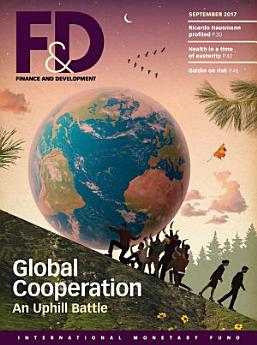Finance and Development, September 2017
International Monetary Fund. External Relations Dept.
сеп 2017. · International Monetary Fund
E-knjiga
64
Stranica
reportOcene i recenzije nisu verifikovane Saznajte više
O ovoj e-knjizi
This paper focuses on the United States and the United Kingdom that were the main architects of the post-1945 order, with the creation of the United Nations systems, but they now appear to be pioneers in the reverse direction—steering an erratic, inconsistent, and domestically controversial course away from multilateralism. Other countries, meanwhile, for various reasons are incapable of assuming that global leadership and the rest of the world likely would not support a new hegemon in any event. The postwar system created at the BrettonWoods, New Hampshire, conference in 1944 should be credited with economic growth, a reduction in poverty, and the absence of destructive trade wars. It built a comity that encourages to this day cooperation on issues as diverse as taxation, financial regulation, climate change policy, and terrorism financing. The central postwar concern was international financial stability. The United States and the newly created International Monetary Fund were at the center of a system that sought to maintain that stability by linking exchange rates to the dollar, with the IMF the arbiter of any changes.
Ocenite ovu e-knjigu
Javite nam svoje mišljenje.
Informacije o čitanju
Pametni telefoni i tableti
Instalirajte aplikaciju Google Play knjige za Android i iPad/iPhone. Automatski se sinhronizuje sa nalogom i omogućava vam da čitate onlajn i oflajn gde god da se nalazite.
Laptopovi i računari
Možete da slušate audio-knjige kupljene na Google Play-u pomoću veb-pregledača na računaru.
E-čitači i drugi uređaji
Da biste čitali na uređajima koje koriste e-mastilo, kao što su Kobo e-čitači, treba da preuzmete fajl i prenesete ga na uređaj. Pratite detaljna uputstva iz centra za pomoć da biste preneli fajlove u podržane e-čitače.








